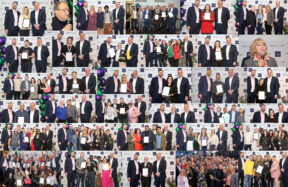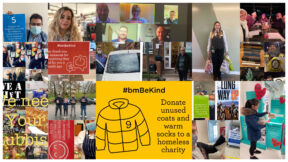Blogs
Why I advertise my pronouns publicly

It can be difficult to create a diverse and inclusive workplace, but the most important thing is to get started. Enabling conversations about people’s gender pronouns is one step organisations can take to ensure communications are inclusive.
Have you recently come across someone who uses he/him, she/her, or they/them in their email signature or social media bio?
It’s simple to do
These are a basic set of pronouns that are becoming increasingly popular, and you don’t have to be LGBT+ to start using them.
I’m a cisgender person, which means I identify with the gender I was assigned at birth. I use the pronouns he/him/his to assist in normalising gender discussions, especially among trans and non-binary people.
Transgender is a phrase used to describe persons whose gender is different from, or who are uncomfortable with, the sex they were assigned at birth.
Non-binary is a phrase used to describe people whose gender identity does not fit neatly into the categories of ‘man’ or ‘woman’.
People with non-binary identities include those who identify with some features of binary identities while rejecting them totally.
They/them is a pronoun used by non-binary people to express where they are on the gender spectrum.
It is a clear act of allyship to normalise the use of pronouns and can help go some way to reducing the need for trans and non-binary workmates and friends to continuously explain their identity.
Using pronouns is an important part of being an LGBT+ ally, it is simple to do, and means a lot to others.
Supporting the use of pronouns
If you want to support the use of pronouns, there are some very easy ways to do so.
1. To begin, update your email signatures and social media biographies. This has the practical benefit of indicating how you like to be addressed, as well as signalling to others that you will respect their gender identification and pronoun preferences.
2. Encourage your organisation to begin planning for International Pronouns Day, which falls on the third Wednesday of October this year, October 16th. Some ideas of how to support this event include distributing badges with statements like ‘Ask me about my pronouns,’ ‘My pronouns are he/him,’ and ‘My pronouns are they/them,’ to normalise gender dialogues and establish a secure, inviting, and inclusive environment for everybody.




